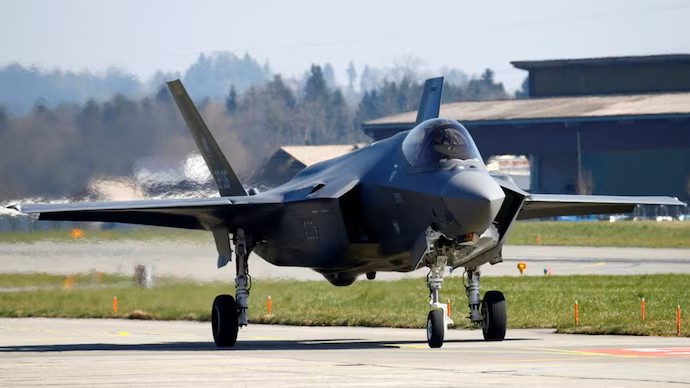Canada and Europe Reassess F-35 Purchases Amid Geopolitical Shifts
International International NewsPosted by NewAdmin on 2025-03-19 09:03:09 |
Share: Facebook | Twitter | Whatsapp | Linkedin Visits: 83

In light of recent geopolitical shifts, both European nations and Canada are reassessing their defense procurement strategies, particularly concerning reliance on U.S.-made military equipment like the F-35 Joint Strike Fighter. This reevaluation stems from uncertainties about the United States' commitment to NATO and its evolving foreign policy under President Donald Trump, which includes reduced emphasis on European security and overtures toward Russia.
Canada, a development partner in the F-35 program, is reconsidering its planned acquisition of 88 F-35 jets from Lockheed Martin, a deal valued at approximately $13.3 billion. Prime Minister Mark Carney has directed Defense Minister Bill Blair to explore alternative options, citing the changing geopolitical environment. Additionally, Canada has opted to procure an Over-the-Horizon Radar system from Australia for $6 billion CAD, aiming to enhance early warning capabilities from the U.S.-Canada border into the Arctic.
In Europe, nations like Portugal are reconsidering their defense equipment choices due to perceived unpredictability in U.S. foreign policy. Portugal's outgoing defense minister indicated that recent U.S. positions necessitate a reassessment of F-35 purchases, prompting exploration of various alternatives to replace its aging F-16 fleet.
European defense manufacturers stand to benefit from this shift. France, for instance, is accelerating orders for its Rafale fighter jets and investing nearly €1.5 billion to upgrade its Luxeuil air base with advanced nuclear-capable missile technology. This move aligns with President Emmanuel Macron's strategy to bolster France's defense capabilities and promote European-made military equipment among allies. The F-35 program's reliance on continuous U.S.-controlled technological updates has raised concerns among allies about potential vulnerabilities, such as the hypothetical existence of a "kill switch." While the Pentagon's F-35 Lightning II Joint Program Office has firmly denied such capabilities, stating there is no kill switch and emphasizing the program's foundation on global partnerships, apprehensions persist.
Search
Categories
Recent News
- Big Tech's Child Safety Crisis: Australia Sounds the Alarm
- Blue Cloud Softech's $150M Edge AI Chip Venture
- Nuclear Diplomacy Revived: US and Iran Resume Talks
- Curiosity Illuminates Mars: Unveiling the Red Planet's Night Secrets
- Telangana's Cybercrime Conclave: AI Takes Centre Stage
- SEIL's Rs 20 Crore Hospital Project: A Milestone for Rural Healthcare
- India's Strategic Patience: Navigating US Trade Tensions
- Cyclone Ditwah: Andhra on High Alert as Storm Approaches
Popular News
- Navigating IPO Market Dynamics Amid Volatility and Regulatory Changes
- Massive Worldwide Microsoft Outage Disrupts Multiple Sectors
- Panjapur Bus Stand to Reshape TNSTC Routes
- తెలుగుదేశం పార్టీ - పేదరికాన్ని నిర్మూలించడంలో వాగ్దానం
- Universities Embrace Remote Learning Technologies Amidst Ongoing Pandemic